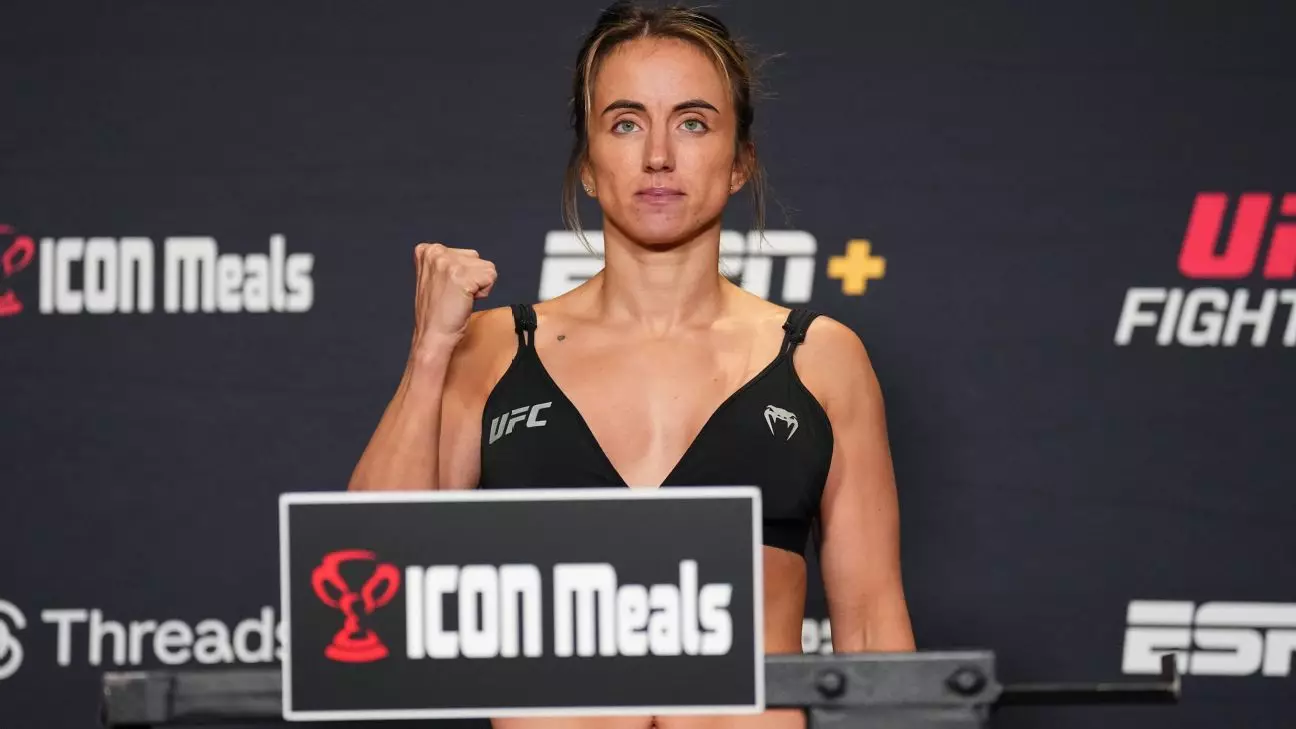In an unfortunate turn of events, the highly anticipated UFC Fight Night main event was abruptly canceled just moments before fighters were set to enter the cage. Maycee Barber, an exciting prospect in the women’s flyweight division, was scheduled to square off against Erin Blanchfield in what promised to be a thrilling matchup. Instead, it became a prime example of the complexities surrounding athlete health and safety in professional sports. Barber’s inability to be cleared for the fight, following significant health challenges, raises questions about both fighter preparation and the protocols in place within the UFC.
The Weight of Expectations
Barber’s struggle with injuries and a serious illness that kept her in the hospital for 11 days is a sobering reminder of the physical and mental toll that MMA athletes endure. As athletes often face immense pressure to compete despite personal health issues, it’s crucial to consider how this culture contributes to their well-being. Missing weight by half a pound added to an already burdensome situation, resulting in Barber surrendering 20% of her purse to Blanchfield. These incidents spotlight the strict requirements and rituals fighters adhere to for competition, sometimes at their own expense.
The Emotional Toll on Fighters
Blanchfield’s reaction upon learning about the fight’s cancellation further underscores the emotional challenges athletes face. Her disbelief is relatable, as many fighters sacrifice time, energy, and emotional investment to prepare for bouts. The unexpected nature of this situation not only disrupts their plans but also shifts their focus, forcing them to adapt in an instant. For Blanchfield, who sits at number four in the women’s bantamweight rankings, the cancellation threatens to stall her rise in a competitive landscape. It highlights the necessity for fighters to have a robust set of coping mechanisms to navigate the unpredictability that comes with the sport.
The Call for Action Amidst Uncertainty
In the wake of the canceled bout, Blanchfield exhibited resilience and clarity of purpose, pleading with the UFC to provide her with another fight opportunity—one that would allow her continued progression toward a title shot. Her proactive stance serves as a model for how fighters can respond to setbacks, asserting their worth and readiness amid uncertainty. Notably, her dismissal of the idea to reschedule the fight against Barber reflects the competitive landscape’s harsh realities, where athletes must constantly position themselves strategically, or risk being overshadowed.
A Reflection on Fighter Safety and Decision-Making
The abrupt withdrawal of Barber from the fight is emblematic of the pressing need for transparent medical protocols within the sport. The UFC must navigate the fine line between athletes’ passions for competition and their health, ensuring that fighters do not feel compelled to step into the Octagon unless they are fully fit. This incident calls for a reassessment of the emphasis placed on weight management and fight readiness, prioritizing long-term athlete health over immediate entertainment value. As the combat sports landscape evolves, promoting fighter safety should take precedence, ensuring that the athletes who entertain us are given every opportunity to thrive both inside and outside the cage.


Leave a Reply